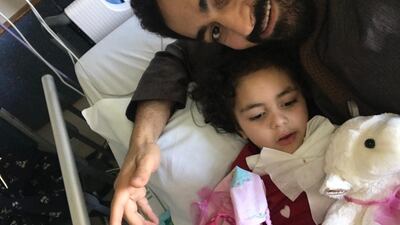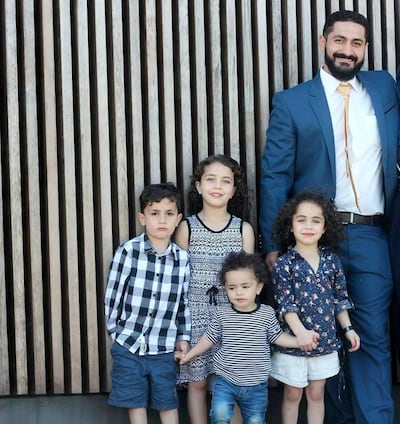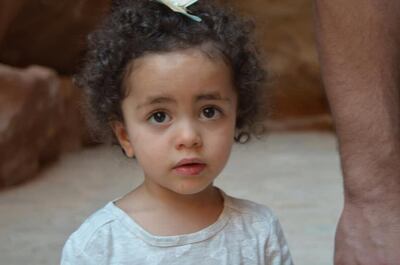It is a bittersweet homecoming for Wasseim Alsati and his daughter, as they returned to Christchurch for the first time since they were both gravely injured in the mosque attacks.
Mr Alsati, who has lived in New Zealand after moving from Jordan five years ago, was shot three times in the terrorist attack that claimed 51 lives on March 15. His four-year-old daughter Alen was also shot three times, and has been in Auckland receiving specialist treatment and rehabilitation.
Mr Alsati works as a barber in Christchurch, but has been off work for the past four months as he remained by his daughter’s bedside and recovered from his own wounds. Mr Alsati and his wife have four children; Alen is the youngest.
The pair returned home last week, but knew they were coming home to a different Christchurch. Mr Alsati had been let go from his job and the family of six had been told they had to leave their home.
It is a harsh blow after an already horrific few months – Mr Alsati had been struggling attempting to care for his children, and extended family, who had come to help in the aftermath of the shootings, while being off work. But he is nonetheless pragmatic about the ordeal.
He understands his landlord’s need to sell the house, and under any other circumstances he would have applied for a mortgage to buy it. However, because he is off work and receiving a stipend from New Zealand’s Accident Compensation Corporation, he is unable to apply for one. He says he is about $80,000 NZD (Dh197,439) away from being able to purchase the house outright, largely bolstered by a fundraising page created to help him and his family get back on his feet.
Mr Alsati and Alen were transferred to New Zealand’s specialist children’s hospital in Auckland immediately after the attacks, which is where they remained, with Alen in rehab, until last Thursday when they returned home.
One of the first things Mr Alsati did when he returned was take Alen to Christchurch Hospital, so he could “walk out of there with her alive”. A picture of the momentous occasion shows the small girl beaming from her wheelchair from the hospital hallway.
Alen's rehab had been progressing positively, he tells The National, but it had been "a rough few months".
He was still on crutches, recovering from his own life-threatening wounds. “I’ve had seven surgeries, my daughter has had nine. I have bullet fragments still inside me – I cannot wear proper pants. They could do nothing about it because they need the fragments to come to the surface, because they are behind the muscles.”
Alen was brain-damaged and struggling to see, walk or talk in the weeks after the attacks. She has since regained her speech in English and Arabic, and partial eyesight. But as she did not see the shooter, she blames her father for her injuries.
“I was really upset. Luckily my daughter didn’t see the shooter, she just saw me pick her up and throw her on the ground. She said to me the other day: ‘Why did you throw me on the ground?’, and I said ‘You’ll understand when you grow up. That was the best for you’.”
And if Alen’s story had not already come full circle with her return to the hospital she was rushed to four months ago clinically dead, it certainly did when the surgeon who saved her life spoke to her on the phone.
Vascular surgeon Adib Khanafer calls Alen his “masterpiece”, and managed to speak to the family a few weeks ago when they were still in Auckland. Mr Alsati had been speaking to Khanafer about her recovery, when he asked the surgeon if he’d like to speak to the girl whose life he had saved.
“She said she wanted to be a policewoman when she grew up,” Mr Khanafer recalls. “I said no, we’re going to make you a vascular surgeon – and she said ‘okay I’ll be a surgeon’.”



